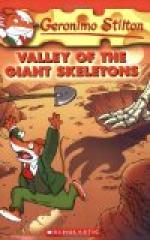“She loved it, McTavish. It pleased her to come here with me; she’d make up a lunch of her own cooking and I would catch trout in the stream by the dogwoods yonder and fry the fish for her. Sometimes I’d barbecue a venison steak and—well, ’twas our playhouse, McTavish, and I who am no longer young—I who never played until I met her—I— I’m a bit foolish, I fear, but I found rest and comfort here, McTavish, even before I met her, and I’m thinking I’ll have to come here often for the same. She—she was a very superior woman, McTavish—very superior. Ah, man, the soul of her! I cannot bear that her body should rest in Sequoia cemetery, along with the rag tag and bobtail o’ the town. She was like this sunbeam, McTavish. She—she—”
“Aye,” murmured McTavish huskily. “I ken. Ye wouldna gie her a common or a public spot in which to wait for ye. An’ ye’ll be shuttin’ down the mill an’ loggin’-camps an’ layin’ off the hands in her honour for a bit?”
“Until after the funeral, McTavish. And tell your men they’ll be paid for the lost time. That will be all, lad.”
When McTavish was gone, John Cardigan sat down on a small sugar-pine windfall, his head held slightly to one side while he listened to that which in the redwoods is not sound but rather the absence of it. And as he listened, he absorbed a subtle comfort from those huge brown trees, so emblematic of immortality; in the thought he grew closer to his Maker, and presently found that peace which he sought. Love such as theirs could never die... The tears came at last.
At sundown he walked home bearing an armful of rhododendrons and dogwood blossoms, which he arranged in the room where she lay. Then he sought the nurse who had attended her.
“I’d like to hold my son,” he said gently. “May I?”
She brought him the baby and placed it in his great arms that trembled so; he sat down and gazed long and earnestly at this flesh of his flesh and blood of his blood. “You’ll have her hair and skin and eyes,” he murmured. “My son, my son, I shall love you so, for now I must love for two. Sorrow I shall keep from you, please God, and happiness and worldly comfort shall I leave you when I go to her.” He nuzzled his grizzled cheek against the baby’s face. “Just you and my trees,” he whispered, “just you and my trees to help me hang on to a plucky finish.”
For love and paternity had come to him late in life, and so had his first great sorrow; wherefore, since he was not accustomed to these heritages of all flesh, he would have to adjust himself to the change. But his son and his trees—ah, yes, they would help. And he would gather more redwoods now!




